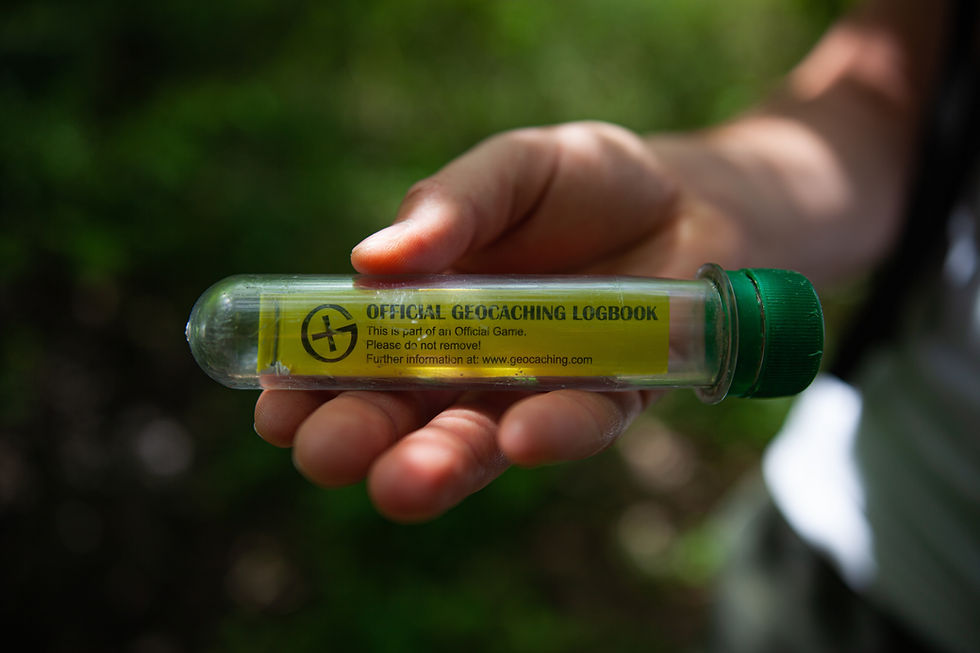Let's Go Geocaching!
- Ellen DeLisi
- Sep 3, 2023
- 2 min read

Geocaching is an outdoor recreational activity that involves using GPS (Global Positioning System) coordinates to hide and seek containers, called "geocaches" or "caches," at specific locations marked by coordinates all over the world. Geocaching provides several learning opportunities with technology, especially for those who participate in the activity. Here's how:
1. Navigation Skills: Geocaching requires participants to use GPS devices or smartphone apps to navigate to specific coordinates. This helps individuals develop and improve their navigation skills, including understanding longitude and latitude, interpreting maps, and using GPS technology effectively.
2. Technology Literacy: Engaging in geocaching encourages participants to use GPS devices or smartphone apps, helping them become more comfortable with technology. They learn how to operate and interpret the information presented by these tools, enhancing their overall technology literacy.
3. Geographical Knowledge: Geocaching often takes participants to unique and lesser-known locations, fostering an interest in geography and the physical world. Participants learn about local landmarks, historical sites, natural features, and cultural points of interest in their region.
4. Problem-Solving: Geocaches are often cleverly hidden, requiring participants to think critically and creatively to locate them. This promotes problem-solving skills as they analyze clues, consider potential hiding spots, and deduce the cache's location.
5. Teamwork and Collaboration: Geocaching can be done individually or in groups. When working in teams, participants learn to communicate effectively, delegate tasks, and collaborate to find the cache. This promotes teamwork and social skills.
6. Attention to Detail: Geocaches can vary in size and camouflage, making them sometimes challenging to spot. Participants learn to pay attention to details in their surroundings, enhancing their observational skills.
7. Environmental Awareness: Geocaching encourages participants to explore outdoor environments. This can foster a greater appreciation for nature, conservation, and responsible outdoor activities.
8. Digital Mapping: Many geocaching platforms provide digital maps that display caches and their coordinates. Participants learn to interpret these maps, identify different types of terrain, and plan routes accordingly.
9. Data Interpretation: Some geocaching apps provide statistics about one's finds, hides, and other metrics. This offers an opportunity to interpret and analyze data, fostering basic data literacy skills.
10. Creativity: Geocachers often create their own caches, designing containers, clues, and themes. This requires creative thinking and the ability to design engaging and enjoyable experiences for other participants.
11. Community Engagement: Geocaching has a strong online community where participants share stories, tips, and experiences. Engaging with this community fosters networking, sharing of knowledge, and learning from others.
12. Outdoor Education: Geocaching encourages people to spend time outdoors, promoting physical activity, and an appreciation for nature. It can be integrated into educational programs to provide hands-on outdoor learning experiences for students.
Overall, geocaching combines technology, exploration, and problem-solving to create a unique learning experience. It encourages participants to engage with their surroundings, use GPS technology effectively, and develop a range of skills that can be valuable in both educational and recreational contexts.





Comments